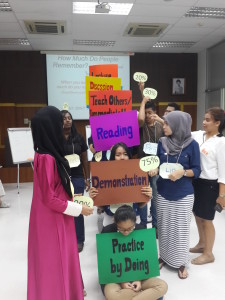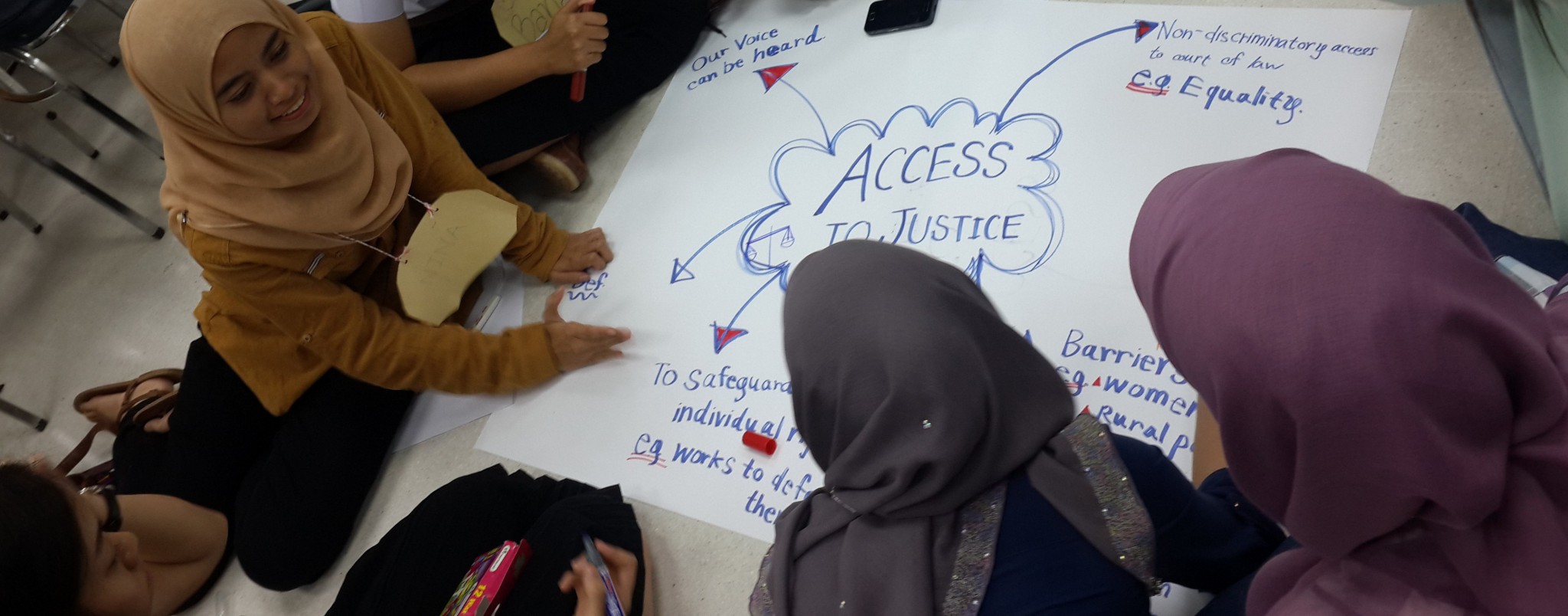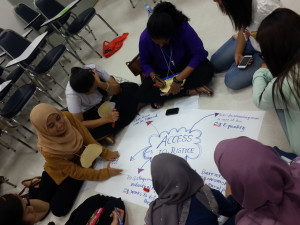By: Nattakan Chomputhong, Legal Trainer, BABSEACLE
On the 20th of August, 2014, BABSEACLE conducted a one day Clinical Legal Education (CLE) Training Workshop , in Songkla, Thailand. The participants, who were mostly students participating in a regional student initiative organized by PSU each year, came from throughout Asia. They included students from the University of Malaya, University of Pancasila (Indonesia), Oxbridge College (China), and Prince of Songkla University. Additionally law lecturers from the Prince of Songkla University Law and from the National University of Laos also participated.
The workshop included sessions focusing on introduction to CLE, CLE methodologies, and CLE class demonstrations on how these methods are applied in the classroom. They were incredibly varied and even included showing how puppets can be used to teach. The students were encouraged to integrate CLE methodology with the different ways that topics can be taught.
The workshop began with a common themed energizer BABSEACLE often uses to both teach a substantive introduction to law lesson as well as illustrate easy to use CLE teaching methods. It is call the Candy Game, which was used to explain the importance of why we need laws in society and why we need good laws.
I was impressed by this game because it obviously shows why it is important to have laws in society and the problems that may occur if these laws are not made clear. It clearly demonstrated CLE teaching methodologies and how CLE lessons work.
The session was followed by an introduction to CLE and its methodologies. The participants learnt different CLE teaching methods and applied these methods to their teaching. When students were asked to think of what subjects at their universities they did not like, and why, they provided answers which clearly showed that their liking of their courses was often based upon the teaching methods used by their instructors. This was often much more important to them than the content of the course.

The students were asked to think of how these topics could be taught in another way and how to integrate CLE methods into that subject. Then the students demonstrated a History of Legal Systems class, and used puppets to teach.
The workshop also demonstrated the roles that lawyers play, in promoting access to justice, and the nature of what pro bono is. These lessons were chosen from the Legal Ethics/Pro Bono/Access to Justice/ Professional Responsibility Manual that was developed collaboratively between BABSEACLE, BABSEACLE Singapore, BABSEACLE Australia, Herbert Smith Freehills, DLA Piper/New Perimeter, Australia Government Solicitor, and BABSEACLE Foundation. The lessons provided participants with the knowledge, skills, and values of access to justice and pro bono so that they can identify and overcome barriers to accessing justice. The lessons also simultaneously illustrated how to integrate these topics into university curriculum. This was important to us as many university law programmes do not possess such courses.
Feedback and opinions, received from participants, showed that students appreciated the depth and impact CLE teaching methods and programmes could have and want CLE at their universities, and want their law lecturers to use CLE teaching methods in their classes.


